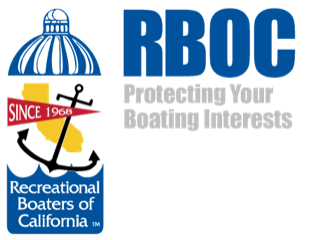SB 561 [Blakespear] of 2025 is a new version of previous year’s SB 1066
RBOC and our national advocacy partner BoatU.S. are urging that amendments be made to SB 561 [Blakespear], legislation that would establish an extended producer responsibility [EPR] requirement for pyrotechnic marine flares, to incorporate an alternative product collection program such as the proposal by Orion Safety Products.
Recreational boaters care both about responsible environmental stewardship of the waterways, as well as boater safety on the water. We look forward to the development of more feasible paths for replacement of chemical flares and being able to support a future version of this initiative.
RBOC notes the good-faith engagement that was made by Senator Blakespear and her office, Orion Safety Products, National Stewardship Council, Zero Waste Sonoma and other stakeholders during 2024 to understand the objectives of last year’s SB 1066, its implementation, impacts and costs. However,... with widely varying estimates of disposal cost and impact, no clarity about substitute safety measures, or the disposition of similar but much larger commercial flares, and no phase-in period or plan for support ... RBOC was not able to support SB 1066 as it was presented to the Governor for his consideration. The organization did not, however, request the Governor’s veto of the measure.
The organization remains informed by the recreational boating community’s experiences with state and local efforts to facilitate and encourage boaters to voluntarily turn in their marine flares through the past several years, especially thought the California Boating Clean and Green Campaign.
Boaters place a high priority on the importance of marine flares as a mandatory and essential public safety feature. Visual distress signals are an essential part of the safety equipment of a recreational vessel and are required by federal regulations. Alternatives to pyrotechnic flares including electronic beacons are not as effective, especially during daytime hours.
The dialogue to-date has focused on a statewide EPR program as the solution to end-of-life management of marine flares to address the toxic metals and potential pollutants. Effective and affordable alternatives to a full-blown extended producer responsibility requirement can address the specific nature of marine flares, their components, and their ultimate disposal or destruction.
So far as we are aware, Orion is the sole producer of pyrotechnic flares for recreational boaters. The absence of a robust, competitive business environment is likely to lead to the new state and industry costs imposed by an EPR requirement being passed on to and borne by the recreational boaters. A significant cost impact on individual boaters could become a disincentive to purchases.
It is our recollection that Orion previously proposed a one year "test program" in which it would participate in pyrotechnic marine flare collection events in California by packaging and arranging for the transportation of all returned "Orion" branded marine flares back to its Indiana manufacturing and distribution facility with all such costs covered by Orion.
This test program would address a number of critical issues that RBOC and others identified as SB 1066 progressed through the legislative process last year. It would:
Resolve any backlog inventory of outdated pyrotechnic marine flares that are in the possession of boaters.
Enable all stakeholders to obtain additional information and data that will lead to the development of realistic, reasonable and affordable approaches for the end-of-life management of pyrotechnic marine flares.
Identify the challenges and opportunities for pyrotechnic marine flares to be transported, managed, re-used, recycled, and destroyed or disposed.
Accomplish these objectives with no additional state or local government expense.
Avoid the imposition of significant cost increases in a noncompetitive marketplace to be borne by the many recreational boaters who rely upon pyrotechnic marine flares as the most effective visual distress signal.
RBOC will continue to be engaged on SB 561 as the measure moves forward, as the organization is quite concerned that the current version of SB 561 does not resolve the issues the organization articulated with SB 1066.
RBOC urges creative and effective alternatives such as the test program Orion offered in 2024 as an alternative to the imposition of a boilerplate EPR requirement. The organization would also engage in its implementation of this program as an opportunity to advance environmental stewardship of the state’s waterways in a manner that is tailored to this product and mindful of the importance of boater safety on those waterways.




